Promoting Well-Being Through Well-Designed Storage
In order to ensure the wellness of students, faculty, and campus staff, university libraries can make strategic choices when designing public spaces to reduce the risk of patrons spreading communicable diseases.
To that end, our comprehensive lineup of high-density mobile storage solutions can free up space to help keep high-traffic public spaces free of germs while preserving collections and promoting convenient access. To help create a cleaner interior environment, Spacesaver solutions can be outfitted with touch-free controls to help reduce illness from high-touch surfaces.
Here are 3 strategies to reduce touchpoints and help minimize the spread of disease in campus libraries.

Strategy 1 – Off-Site Storage
One option for reducing the spread of illness in library spaces is to move collections to an off-site facility. This will free up space for repurposed use throughout on-campus libraries.
Consolidating printed materials, artwork, archives, and other collections in off-site facilities allows institutions to repurpose valuable space on campus to promote hygiene and wellness. In addition, these flexible spaces can be reconfigured to offer new technology and collaborative work areas.
Featured Project
University of Wisconsin-Madison
Like many campus libraries, the 42 libraries on the UW-Madison campus have become more dynamic over the past few decades. As many of them were transforming to provide more collaborative spaces and access to advanced technology, campus leadership recognized the need for a comprehensive approach to shelving and storage for the libraries’ collections. They decided to build an off-site facility filled with high-bay shelving to optimize the space.
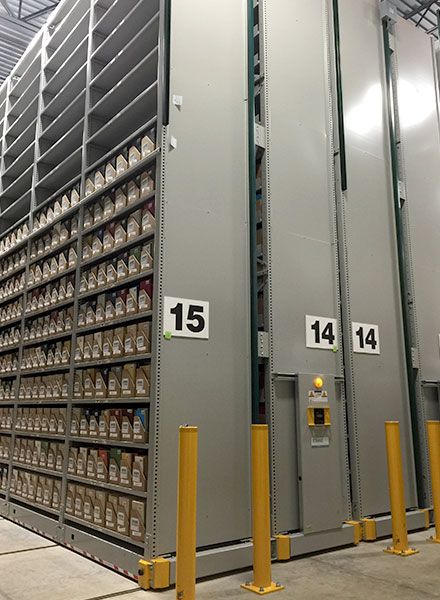
“I often refer to shelving as a lynchpin, because we’re doing other things with the space that the print once occupied. We’re completely rethinking how we’re using the spaces in our libraries today.”
-Ed Van Gemert, Former UW-Madison Vice Provost for Libraries
Working closely with architects and library faculty and staff, Spacesaver’s sales team, project managers, and engineers designed an XTend® High-Bay Archival Shelving System with an estimated capacity of more than 1.2 million volumes. The system has the potential to free up 30,000 square feet on campus while still providing convenient access to materials.
Learn more about UW-Madison’s high-bay facility and how the engineering school transformed the educational experience.
Strategy 2
Compact Storage On-Site
Reduce the stacks’ footprint with high-density mobile shelving.
Spacesaver’s high-density mobile shelving systems allow libraries to keep materials on-site in about half the space of static (non-moving) shelving. To reduce high-touch surfaces, consider powered mobile systems that allow users to open and close aisles from their personal mobile devices instead of using touchscreens.
Featured Project
Montclair State University
To offer students more hands-on experience with cutting-edge technology, Montclair State University’s graphic design department needed more space for design labs. They wanted to relocate to the basement of the main campus library, but the entire floor was filled with book shelving and map cabinets. Wanting to keep those materials on-site, the library’s dean called on the nearby Spacesaver consultant to design a high-density mobile system that would consolidate the library’s existing shelving and cabinets into a smaller footprint.
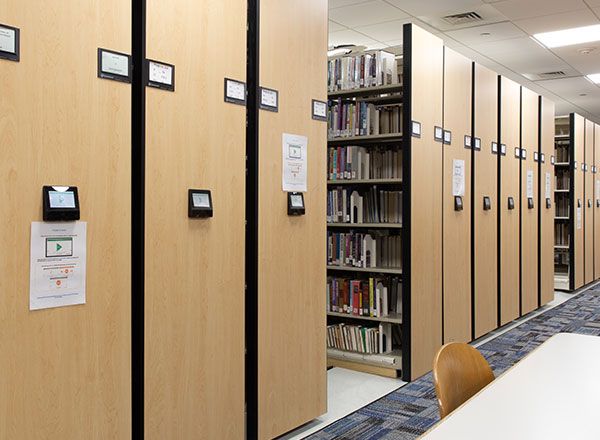
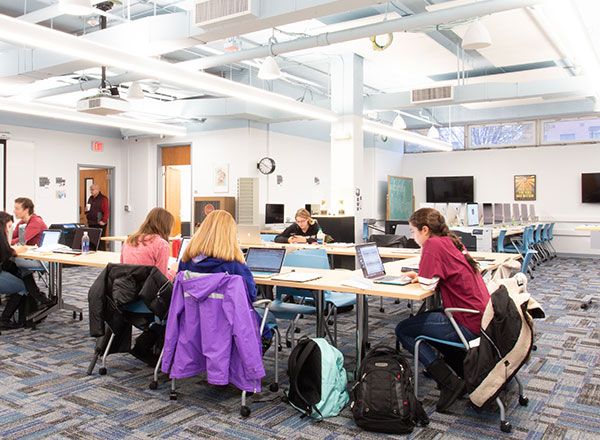
The project freed up space for a classroom, a design studio, and an office to house large-format printers while also maintaining convenient access to collections. The university saved money on the project by avoiding an expensive addition and by repurposing their existing shelving and cabinets onto mobile Spacesaver carriages.

Want to learn more?
Read the case study!
Want to learn more?
Read the case study!


Strategy 3
Convert Existing Mobile Systems
Reduce high-touch surfaces with app-controlled systems.
Eliminating high-touch surfaces is one of the best ways to prevent disease transmission. The TUSC® Control app allows users to open and close aisles, browse and search for stored items, and view the system’s safety status, all without touching the system’s control pads.


Clients with mechanical-assist Spacesaver systems can have their systems converted to powered operation to enable the app. Cut costs by mounting your existing shelving and cabinets on Spacesaver mobile systems.
The TUSC® Control app allows users to open and close aisles, browse and search for stored items, and view the system’s safety status, all without touching the system’s control pads. Learn more about TUSC

Next Up in Education
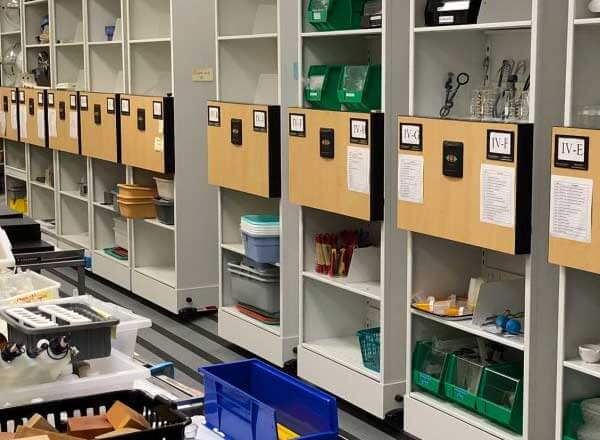
How to Organize and Protect Valuable Materials in Laboratories
Read On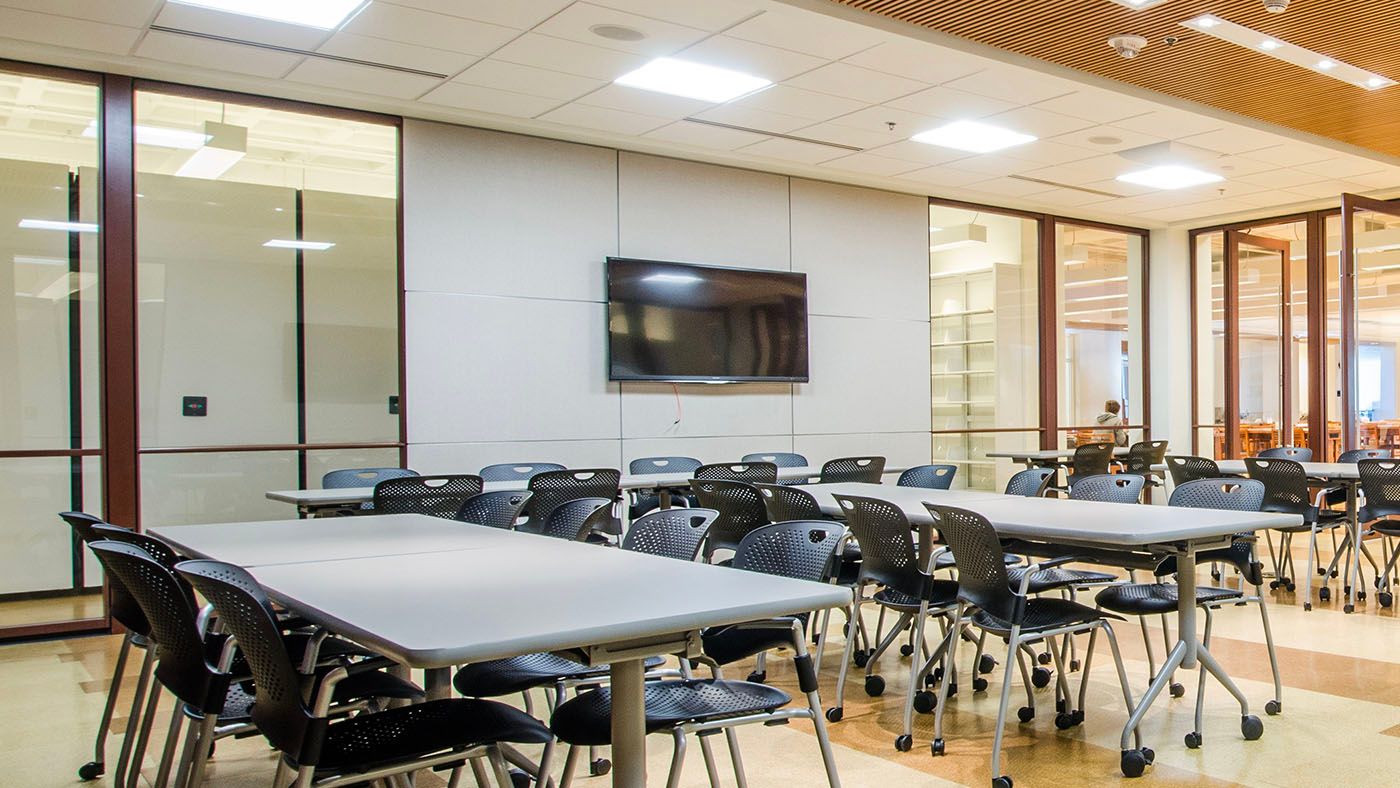
How does high-density mobile shelving optimize storage space compared to traditional shelving units?
Read On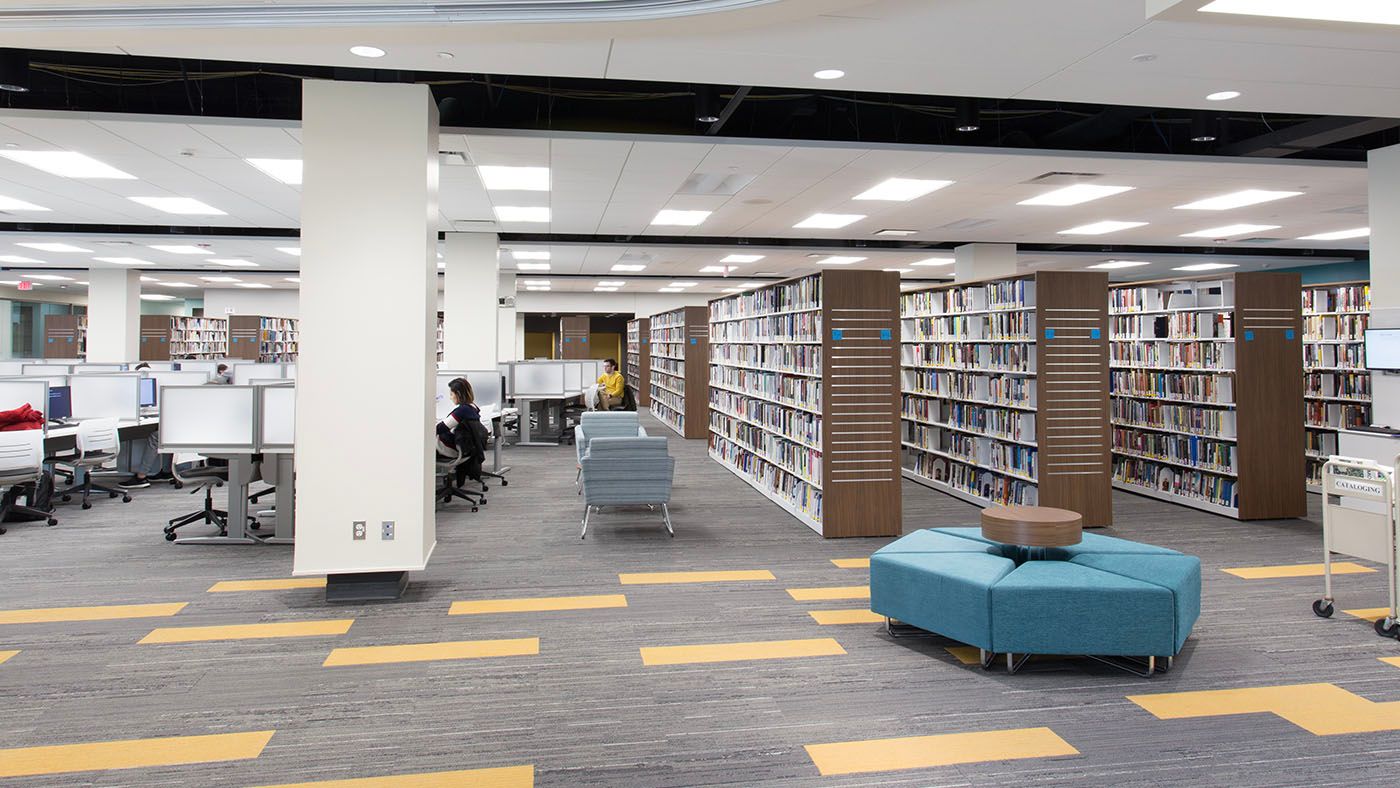
Spacesaver provides insights and installs geared toward advancing your campus library’s impact.
Read On